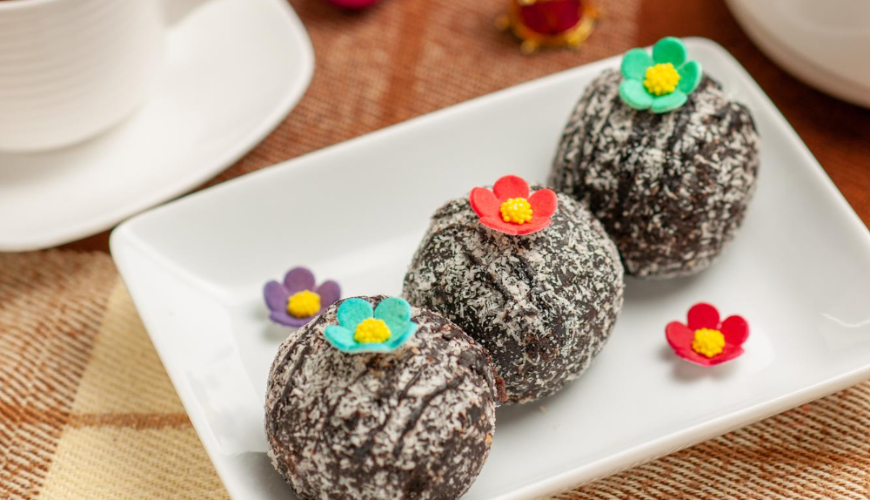
Why is dandelion root important for the pancreas and digestion

Dandelion Root and Its Impact on Pancreatic Health - A Forgotten Treasure from Nature
In a time when a healthy lifestyle is becoming increasingly important, we are turning our attention back to nature. We seek answers in it that modern medicine often overlooks or considers supplementary. One plant that has maintained a firm place in folk healing is the medicinal dandelion. And it is its root that is the focus of not only herbalists but also, recently, nutrition specialists. What if the dandelion root could support the health of our pancreas, an organ that plays a key role in digestion and sugar balance?
Dandelion as a Medicinal Herb - More Than Just a Weed
For most people, the dandelion is just a common weed that relentlessly grows through the lawn. Yet beneath the yellow flowers and jagged leaves lies a plant with extraordinary effects. Dandelion root is rich in bitters, inulin, flavonoids, tannins, and a variety of minerals that can positively influence the functioning of the digestive system, gallbladder, and liver. In traditional medicine, it is primarily used as a cleanser for the body – it supports bile production, diuresis, and the elimination of toxins.
But what does dandelion have to do with the pancreas? The answer might be surprising: more than it seems at first glance. The pancreas plays a crucial role not only in digesting fats and sugars but also in glucose metabolism through its hormonal function – specifically insulin production. And this is where the dandelion root becomes especially interesting.
How Does Dandelion Affect the Pancreas?
The pancreas is the quiet workhorse of our body. Most of the time, we don't even notice it – until there is a problem. Chronic pancreatitis, pancreatic inflammation, or type 2 diabetes often appear subtly, but their treatment is complex and lengthy. Here, natural supportive remedies can play a role.
Dandelion root has anti-inflammatory properties, making it a potential ally in preventing pancreas inflammation. Some scientific studies suggest that extracts from the dandelion root may support pancreatic cell regeneration and protect them from oxidative stress. Oxidative stress, caused by free radicals, is associated with numerous lifestyle diseases, including diabetes.
Moreover, it appears that inulin, a prebiotic found in dandelion root, can positively affect blood sugar levels. Inulin contributes to a better balance of intestinal microflora, which can indirectly improve insulin sensitivity and reduce glycemia, or blood glucose levels. In the long term, it can relieve the overburdened pancreas, which tries to regulate sugar metabolism.
A Practical Story - When a Simple Solution Changes Life
In a world full of synthetic dietary supplements and complicated treatment regimens, we sometimes forget that the solution can be simpler than we think. Ms. Marie, a sixty-year-old teacher from Brno, struggled for years with fatigue, bloating, and fluctuating blood sugar levels. Doctors recommended dietary adjustments and regular blood sugar monitoring. However, she started to seek other options and came across articles about the detoxifying effects of dandelion root.
She began regularly preparing a dandelion decoction – simply boiling a teaspoon of dried root in water and drinking this infusion twice a day. After several weeks, she noticed improved digestion and greater vitality. Her glycemic values began to stabilize. Of course, it was a support, not a replacement for medication or professional care. Nevertheless, her story serves as a quiet testament that natural remedies can play a significant role if given a chance.
How to Incorporate Dandelion Root into Everyday Life?
There are several ways to use dandelion root. Not everyone has the time or inclination to collect wild herbs, but quality dried root can easily be purchased in herbal shops or organic e-shops. It's important to pay attention to the origin and processing method – ideally, it should be root from organic farming, free of chemicals and pesticides.
The most common forms of use include:
- Dandelion root tea – a classic infusion made from boiled dried root
- Tincture – a concentrated alcohol extract, suitable for quick absorption
- Dandelion coffee – roasted root as a substitute for regular coffee, without caffeine
- Tablets or capsules – standardized extracts for easy dosing
Each form has its advantages. Tea offers slow and gentle action, tincture provides a quick effect, and capsules offer convenience. The dosage depends on the specific product, but it is generally recommended to consult use with a specialist, especially if one takes other medications or suffers from a chronic illness.
When the Natural Path Makes Sense
In today's world, surrounded by information and performance demands, we often forget to listen to our bodies. Natural remedies, such as dandelion root, remind us that prevention can be simple, accessible, and effective.
Many experts in functional nutrition and naturopathy emphasize that supporting organs like the liver, kidneys, or pancreas doesn't have to be complicated. It is enough to start with small steps – for example, incorporating herbs with proven effects into the diet. In the case of dandelion, we also gain the advantage of a so-called synergistic effect, where the individual substances in the plant work together and support each other.
"In nature, you won't find a substance that acts in isolation – plants are like a team. And that is their strength," says herbalist and author of a book on medicinal plants, Blanka Koubová.
It is clear that research into the effects of plants on pancreatic health is just beginning. But the first results are promising. If we are looking for a way to support digestion, sugar metabolism, and at the same time relieve the overburdened pancreas, dandelion root is definitely worth attention.
Sometimes, there is no need to look far for a solution – often, you just need to open your eyes and look at your feet. The dandelion, that inconspicuous "weed," may indeed be one of our greatest allies in the fight for a healthier and more balanced life.

